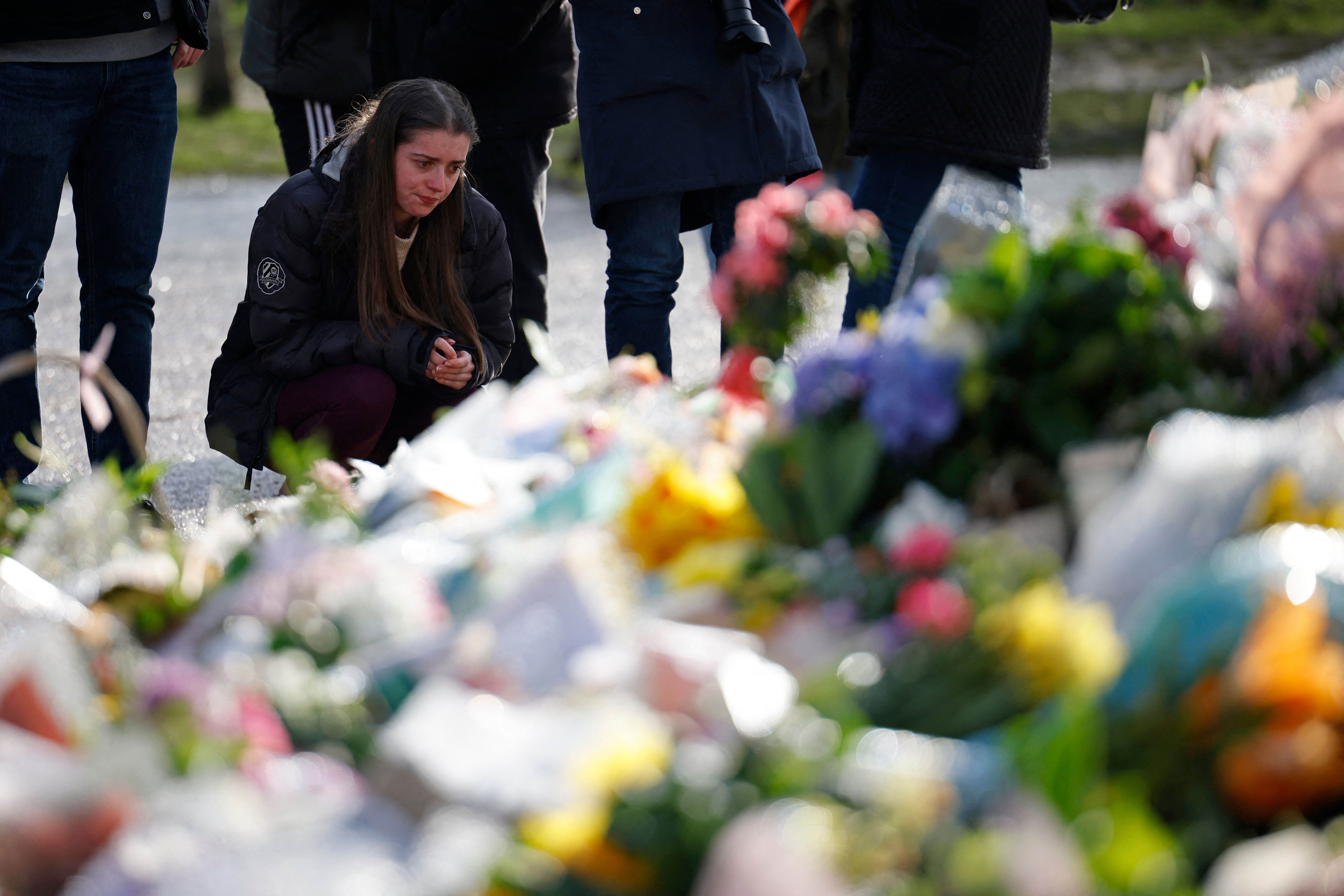[ad_1]

Press play to listen to this article
LONDON — Heavy-handed policing of a vigil in memory of a murdered woman sparked calls for London’s top police officer to stand down — and prompted a host of questions for ministers.
Sarah Everard’s death has prompted soul-searching about whether the U.K. does enough to protect women from violence and allow them to feel safe on Britain’s streets. And it has reignited a debate about policing in the coronavirus pandemic and beyond, with some demanding the resignation of Metropolitan Police Commissioner Cressida Dick.
Everard disappeared when walking home in south London in early March, with her body discovered days later. A Metropolitan Police officer, Wayne Couzens, has been charged with the 33-year-old marketing executive’s kidnapping and murder.
Even before Everard’s body was found, a wider public debate about the safety of women in Britain’s public spaces was underway.
Women took to social media to share their experiences of harassment and assault on Britain’s streets, and the Home Office reopened its consultation on a plan to tackle violence against women and girls, with responses soaring from 18,000 to 78,000 within days.
The opposition Labour Party demanded “long overdue protections” for women, calling for action on domestic homicides, rape and street harassment. In the House of Commons on Monday, Shadow Home Secretary Nick Thomas-Symonds accused the government of “a chronic failure” to act.
Concerns about Britain’s record on tackling violence against women also came from the government’s own side. The Conservative chair of parliament’s women and equalities committee, Caroline Nokes, said Monday that the scale of the response to the consultation had been “absolutely enormous.”
“These are women who do not have confidence in the system at present and we desperately need to instil confidence for them,” she warned.
‘Difficult calls’
The Metropolitan Police, meanwhile, finds itself under intense scrutiny over the way a vigil in Everard’s memory was policed.
The event on south London’s Clapham Common, which organizers said would be a way of “reclaiming our public spaces and coming together to feel a level of solidarity,” was cancelled after the police instead urged mourners to hold candle-lit vigils at home amid sweeping restrictions on public gatherings under coronavirus laws.
Several hundred people still turned up, and the scenes that soon emerged — of Metropolitan Police officers holding down and arresting young women — sparked an outcry and two independent reviews of the force’s conduct.
Liberal Democrat leader Ed Davey called for Dick to resign, and there was fresh anger at the Met’s response to the criticism after the under-fire commissioner attacked “armchair” commentators on the “really difficult calls” being made by her officers.
Dick, however, retains the “full confidence” of Downing Street, while Labour’s Keir Starmer has said he does not believe she should quit. Speaking in the Commons on Monday, Home Secretary Priti Patel said she had held “extensive discussions” with the force about the planned vigil — and that while people living “locally” had the right to lay flowers, the vigil had “turned into some pretty ugly scenes.”
The U.K. government appears to have public opinion on its side — during the health emergency at least.
A snap YouGov poll of 5,168 adults suggested a majority (59 percent) of the public generally thought vigils, protests and marches shouldn’t be allowed to go ahead during the pandemic, compared to 26 percent who said they should.
But Charles Walker, a Tory MP opposed to lockdown, said ministers, not the Metropolitan Police, had “criminalized freedom of protest.” He urged lawmakers to abandon the restrictions immediately.
Statues row
Demonstrators flocked to Parliament Square on Monday night as MPs debated a bill, undergoing its second House of Commons reading, that would hand the police more power to impose conditions on protests, including those that are “intentionally or recklessly causing public nuisance.”
Labour had planned to abstain on the legislation, but announced Sunday it would oppose the law, claiming it was no time to be rushing through measures it feared would impose disproportionate curbs on free expression and the right to protest.
The government is seeking new powers in the wake of the anti-racism Black Lives Matter protests, which saw statues of slave traders toppled, and after the protests by environmental campaigners Extinction Rebellion, which brought London to a standstill after they occupied roads and bridges.
But the opposition seized on a clarification that damage to memorials could lead to up to 10 years in prison — claiming the government has its priorities wrong.
“The 296-page bill … contains the word memorial eight times, and fails to include the word ‘women,’” said Thomas-Symonds. The government’s message, he said, “is they want to lock up people who damage the statues of slave traders for 10 years, when rape sentences start at half that.”
[ad_2]
Source link